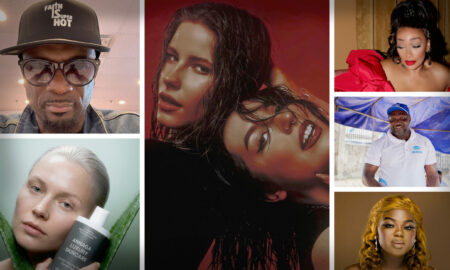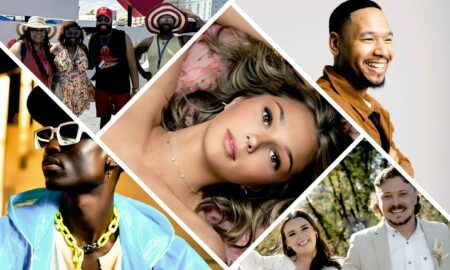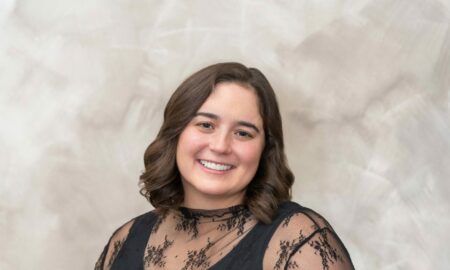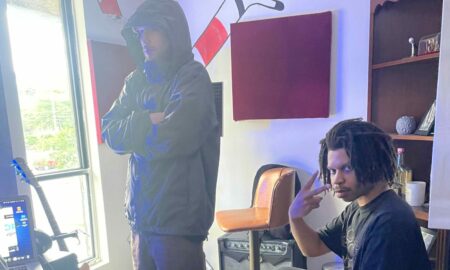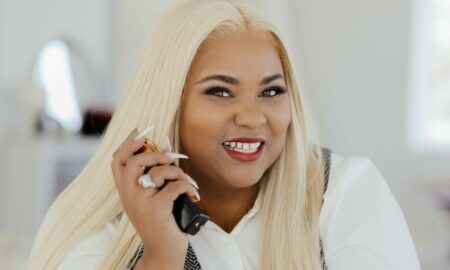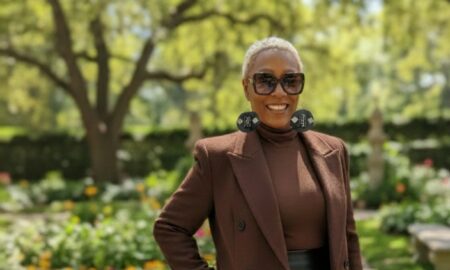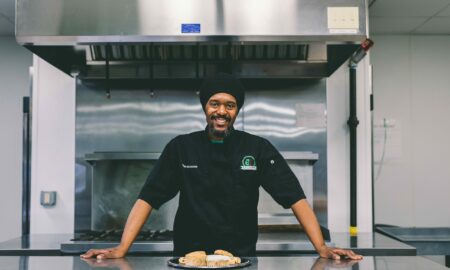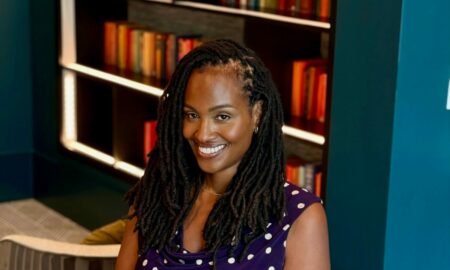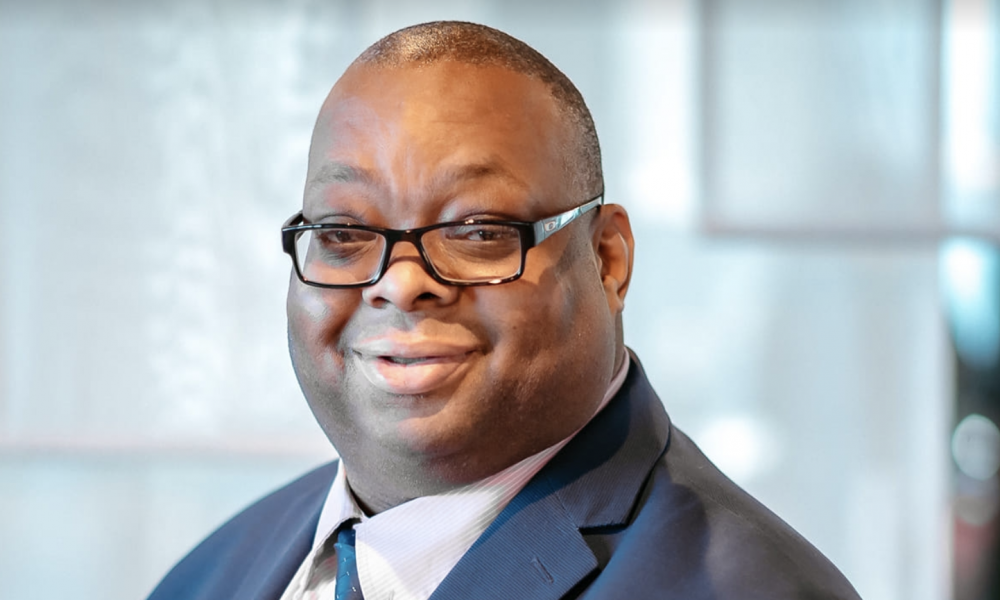

Today we’d like to introduce you to Michael Thomas.
Michael, please share your story with us. How did you get to where you are today?
I was born in Saint Thomas, U.S. Virgin Islands. I moved to the mainland United States to attend college at the Art Institute of Fort Lauderdale. After I completed my education, I moved to Atlanta to begin my professional career. It was a bit of a culture shock as Atlanta turned out to be very different from South Florida. From the start, I knew that I was going to create my own path. I have always had an entrepreneurial mindset and enjoyed developing ideas as well as working for myself. I spent my early career developing my skills and networks by working for organizations and corporations like Bellsouth, MCI, Billboard Magazine, Atlantis Music Conference, Atlanta Caribbean Folk Festival and SunTrust, but I knew eventually I would build something of my own.
Though my mind was always on shaping my destiny, my heart has always been about helping others, especially those impacted by circumstances out of their control. In 1995, I experienced a life-changing experience. I was the victim of Hurricane Marilyn, which completely leveled my home in the U.S. Virgin Islands. My mom, myself, and my brother had to find shelter from the storm in a bedroom closet for eight hours. That moment profoundly impacted my life. It moved me from a bystander to a humanitarian and called me to action. Although I had lost everything, I decided to help others by volunteering with the American Red Cross since there was no school. Through that experience, I learned a lot about myself and the importance of giving versus receiving. I never thought my personal life experience would be a catalyst for the creation of the Caribbean American Cultural Arts Foundation but that’s exactly what happened.
In 2017, I had the opportunity to work with the federal government to provide meals for evacuees from the U.S. Virgin Islands and Puerto Rico. For me, that became a full circle moment because my disaster relief experience in 1995 played a major role in supporting the needs of the evacuees while providing nourishing care and concern. My experience offered valuable context and insight for evacuees who battled dialysis and other underlying health issues. That moment fortified a sense of care for people, the international community and those from my hometown and across the Caribbean American diaspora.
My efforts allowed me, through my foundation work, to give a donation to the Schneider Medical Center in the U.S. Virgin Islands to assist with their dialysis unit. The Caribbean American Cultural Arts Foundation’s donation created a path for rapid digital and seamless information gathering and data sharing for patients being treated with dialysis who are relocated to the US mainland in the wake of a life-threatening storm. This work has been recognized by the State of Georgia House of Representatives.
We’re always bombarded by how great it is to pursue your passion, etc – but we’ve spoken with enough people to know that it’s not always easy. Overall, would you say things have been easy for you?
It was not a smooth road. After moving from the U.S. Virgin Islands, like many people who move to a new environment, I dealt with major culture shock. It took some time to navigate the often-challenging world of the mainland. I encountered complexities that I never faced living in the Caribbean region. I found myself being challenged by my accent, underestimated about my abilities and stereotyped by people who did not take the time to get to know me or the value that I could add. This was a bit aggravating, to say in the least, but as the world became a little bit smaller through the internet, things began to level out. Though things got easier, my experiences placed doubt in my accessibility to claim the “American Dream.”
Another major challenge was finances and opportunities. I was always taught hard work pays off, but the inequities and complexities of being a minority citizen on the mainland was the biggest culture shock of them all. It also affected my access to bigger opportunities and more financial resources. It also made no sense to me, but in a way, it motivated me to shift my mindset and led me to look deep within to create something lasting with a greater impact.
I have always been a workaholic and most likely, that will never change. I tend to drive myself through failure. If it doesn’t work, I go back to the drawing board, regroup and find a way execute to my ideas. Though my vision was magnificent, it was not easy to attain. I struggled. I failed, but I never gave up. I shifted my plans and I realized that there was a need and wanted to connect with the diverse, multicultural communities that included people from outside the 48 continuous states and international communities.
Please tell us about Caribbean American Cultural Arts Foundation.
Back when I lived in South Florida, I experienced so much diversity. When I arrived in Georgia, that experience opened my eyes to the work that was needed to paint a clear picture of the Caribbean American community in the state. I knew that I wanted to celebrate the community’s accomplishments, people, and broader impact. That desire was the force behind my idea to create a platform to honor these achievers and their achievements, which is now the Captains of Industry Gala, the annual fundraising event for the Caribbean American Cultural Arts Foundation.
As the founder and chairman of the Caribbean American Cultural Arts Foundation, I wanted to lead an organization that can assist the local and national multicultural community. The organization specializes in disaster preparedness and relief, cultural awareness, educational mentorship, and diversity programs.
I am proud that the organization has grown over the past few years and is on track to complete more local and national programs. We kicked started our special programming with students from the Westside, Vine City area during the pandemic. The art therapy program consisted of student-curated art pieces for first responders and senior citizens. Our unique programming is driven by the philosophy of connecting the multicultural diaspora to learn more about the global community.
Who else deserves credit – have you had mentors, supporters, cheerleaders, advocates, clients or teammates that have played a big role in your success or the success of the business? If so –who are they and what role did they plan / how did they help.
My mom deserves most of the credit for my success; it was not an easy road to get to where I am today. Although my mom recently passed away, the values and principles that she instilled in me have been a guiding force in my life and work. She taught me to be integrous, straightforward and to treat people with fairness and respect as I would like to be treated.
She was my first mentor, which inspired me to surround myself with other mentors in the community. I also had some really impressive teachers growing up, that were dedicated to my success. I can also credit the diversity that I experienced growing up in the U.S. Virgin Islands, which is a melting pot of various cultures from the mainland U.S. and the Caribbean region. This environment fostered my world view of inclusivity and diversity. It also showed me that we have more in common than we do in contrast.
Contact Info:
- Address: Mailing Address: 1185 Hightower Trail #501383
Atlanta, GA 31150 - Website: www.caribbeanculturalarts.org
- Phone: 404-806-9053
- Email: connect@caribbeanculturalarts.org
- Instagram: https://www.instagram.com/caribculturalarts
- Facebook: https://www.facebook.com/caribculturalarts
- Twitter: https://twitter.com/caribculturarts








Suggest a story: VoyageATL is built on recommendations from the community; it’s how we uncover hidden gems, so if you or someone you know deserves recognition please let us know here.

